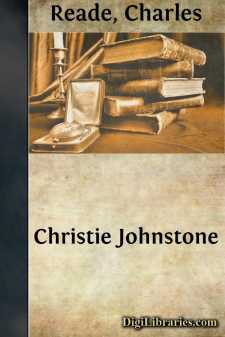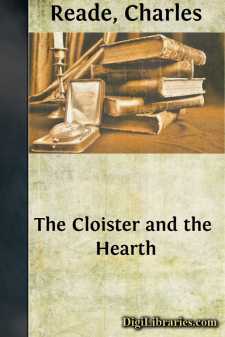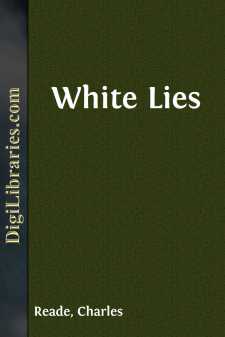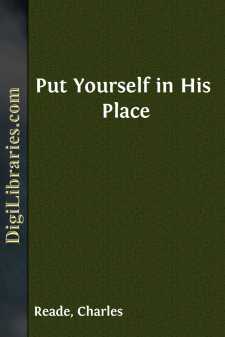Categories
- Antiques & Collectibles 13
- Architecture 36
- Art 48
- Bibles 22
- Biography & Autobiography 813
- Body, Mind & Spirit 138
- Business & Economics 28
- Children's Books 12
- Children's Fiction 9
- Computers 4
- Cooking 94
- Crafts & Hobbies 4
- Drama 346
- Education 46
- Family & Relationships 57
- Fiction 11821
- Games 19
- Gardening 17
- Health & Fitness 34
- History 1377
- House & Home 1
- Humor 147
- Juvenile Fiction 1873
- Juvenile Nonfiction 202
- Language Arts & Disciplines 88
- Law 16
- Literary Collections 686
- Literary Criticism 179
- Mathematics 13
- Medical 41
- Music 40
- Nature 179
- Non-Classifiable 1768
- Performing Arts 7
- Periodicals 1453
- Philosophy 64
- Photography 2
- Poetry 896
- Political Science 203
- Psychology 42
- Reference 154
- Religion 505
- Science 126
- Self-Help 81
- Social Science 81
- Sports & Recreation 34
- Study Aids 3
- Technology & Engineering 59
- Transportation 23
- Travel 463
- True Crime 29
A Perilous Secret
by: Charles Reade
Description:
Excerpt
CHAPTER I.
THE POOR MAN'S CHILD.
Two worn travellers, a young man and a fair girl about four years old, sat on the towing-path by the side of the Trent.
The young man had his coat off, by which you might infer it was very hot; but no, it was a keen October day, and an east wind sweeping down the river. The coat was wrapped tightly round the little girl, so that only her fair face with blue eyes and golden hair peeped out; and the young father sat in his shirt sleeves, looking down on her with a loving but anxious look. Her mother, his wife, had died of consumption, and he was in mortal terror lest biting winds and scanty food should wither this sweet flower too, his one remaining joy.
William Hope was a man full of talent; self-educated, and wonderfully quick at learning anything: he was a linguist, a mechanic, a mineralogist, a draughtsman, an inventor. Item, a bit of a farrier, and half a surgeon; could play the fiddle and the guitar; could draw and paint and drive a four-in-hand. Almost the only thing he could not do was to make money and keep it.
Versatility seldom pays. But, to tell the truth, luck was against him; and although in a long life every deserving man seems to get a chance, yet Fortune does baffle some meritorious men for a limited time. Generally, we think, good fortune and ill fortune succeed each other rapidly, like red cards and black; but to some ill luck comes in great long slices; and if they don't drink or despair, by-and-by good luck comes continuously, and everything turns to gold with him who has waited and deserved.
Well, for years Fortune was hard on William Hope. It never let him get his head above-water. If he got a good place, the employer died or sold his business. If he patented an invention, and exhausted his savings to pay the fees, no capitalist would work it, or some other inventor proved he had invented something so like it that there was no basis for a monopoly.
At last there fell on him the heaviest blow of all. He had accumulated £50 as a merchant's clerk, and was in negotiation for a small independent business, when his wife, whom he loved tenderly, sickened.
For eight months he was distracted with hopes and fears. These gave way to dismal certainty. She died, and left him broken-hearted and poor, impoverished by the doctors, and pauperized by the undertaker. Then his crushed heart had but one desire—to fly from the home that had lost its sunshine, and the very country which had been calamitous to him.
He had one stanch friend, who had lately returned rich from New Zealand, and had offered to send him out as his agent, and to lend him money in the colony. Hope had declined, and his friend had taken the huff, and had not written to him since. But Hope knew he was settled in Hull, and too good-hearted at bottom to go from his word in his friend's present sad condition. So William Hope paid every debt he owed in Liverpool, took his child to her mother's tombstone, and prayed by it, and started to cross the island, and then leave it for many a long day....









